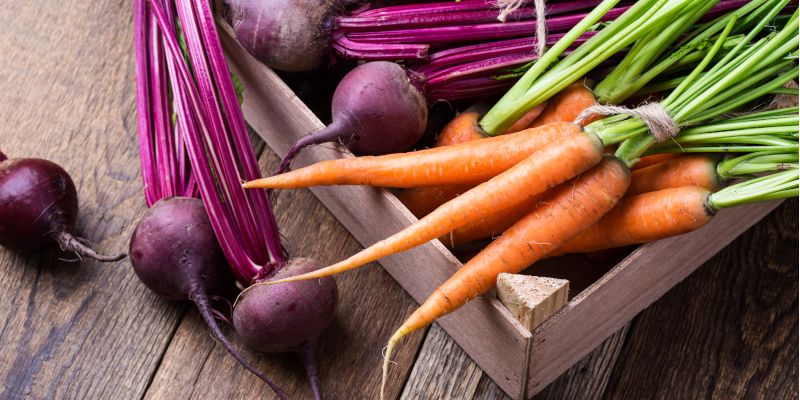
Sales of discounted fruit and vegetables rose by almost 80% during two trials at Sainsbury’s.
And many shoppers continued to buy the more healthy food even after prices reverted to previous levels, according to new research.
The study, led by the University of Leeds, was carried out in collaboration with the Institute of Grocery Distribution (IGD) and examined the contents of 23.4 million shopping baskets.
A total of 101 Sainsbury’s stores across the country were involved in the food promotion, which took place during four-week periods in January 2020 and January 2021.
During each of the trials, the cost of selected fruit and vegetables was reduced to 60p. Data analysed by the research team at Leeds found that sales of the reduced price fruit and vegetables increased by 78%.
Consumer behaviour
Dr Michelle Morris, of Leeds’ School of Medicine, led the research.
“Using anonymous sales data at scale, over an extended period of time to understand consumer behaviours and evaluate interventions, is unique and exciting,” said Dr Morris, who leads the Nutrition and Lifestyle Analytics team based at the Leeds Institute for Data Analytics and the Consumer Data Research Centre.
“The collaborative approach to study design, independent analysis and wide dissemination strategy means that we can share learnings across the sector to make the best changes to help consumers purchase healthier and more sustainable choices.”
The research team found that following the trial period, sales of the promoted fruit and vegetable remained above average during the month after the discounts ended, suggesting some shoppers maintained their healthier diets.
Discounted fruit and vegetables
During January 2020, Sainsbury’s sold 13 items at the promotional price of 60p. Sales rose in 11 items including avocado, pineapple, mango, kiwi celery, kale, aubergine, carrots, mini apples, beetroot and radish. During the trial period, sales were below the baseline for two discounted items - swede and red grapefruit.
In January 2021, seven items were discounted. Sales rose in all of them: avocado, kiwi, mango, little gem lettuce, kale, pomegranate and red grapefruit.
Previous findings by IGD revealed that 37% of shoppers said cost prevented them from eating a healthy, sustainable diet*.
Susan Barratt, IGD CEO, said: “Obesity is one of the biggest health problems this country faces. Just 1% of the UK population currently meets government healthy eating guidance.**
“With our diets having such a huge impact on our health and our planet, now is the time for government, the food and consumer goods industry and shoppers to take collective action. The most impactful way to make a difference is to change what we eat and drink.
“This report explores our initial findings, which already shows a positive impact through nudge tactics, pricing and product placement.
“This is a hugely exciting project, demonstrating the genuine opportunity our industry has to make healthy and sustainable diets easier and more accessible for everyone.”
Further findings from Sainsbury’s – looking at whether shoppers continued to eat a greater variety of fruit and vegetables in the year after the trial – will be reported in 2022.
Further information
Healthy, Sustainable Diets: Driving Change is available to view or download.
*Source: IGD (2021), Appetite for Change
**Source:British Medical Journal
About the research:
a. The trials were implemented nationally, in January 2020 and January 2021, across main estate stores and e-commerce. The trials impact multiple regions and demographics.
b. As most shoppers purchase from multiple food and grocery stores each month, these results represent Sainsbury’s shopper baskets and not an individual’s entire diet.
c. The 60p Fruit and Vegetable promotion ran for eight weeks (across 2020 and 2021), spanning two years and 101 Sainsbury’s stores nationwide and online.
d. During the eight weeks of intervention, 1.5 million baskets contained the promoted fruit or vegetables; data from 23.4 million baskets was analysed in total.
e. In 2020, 13 products were offered as part of the 60p fruit and vegetable promotion. In 2021, this was limited to seven.
f. In the four-week intervention period in January 2020, promoted fruit and vegetables comprised 9% of total fruit and vegetable purchases during the promotion period, falling to 5% in in the 4 weeks that followed. In 2021, this was 8% during the intervention, falling to 6% in the 4 weeks following.
For more information, contact Ian Rosser, Head of Corporate Communications at the University of Leeds, by email on i.rosser@leeds.ac.uk.